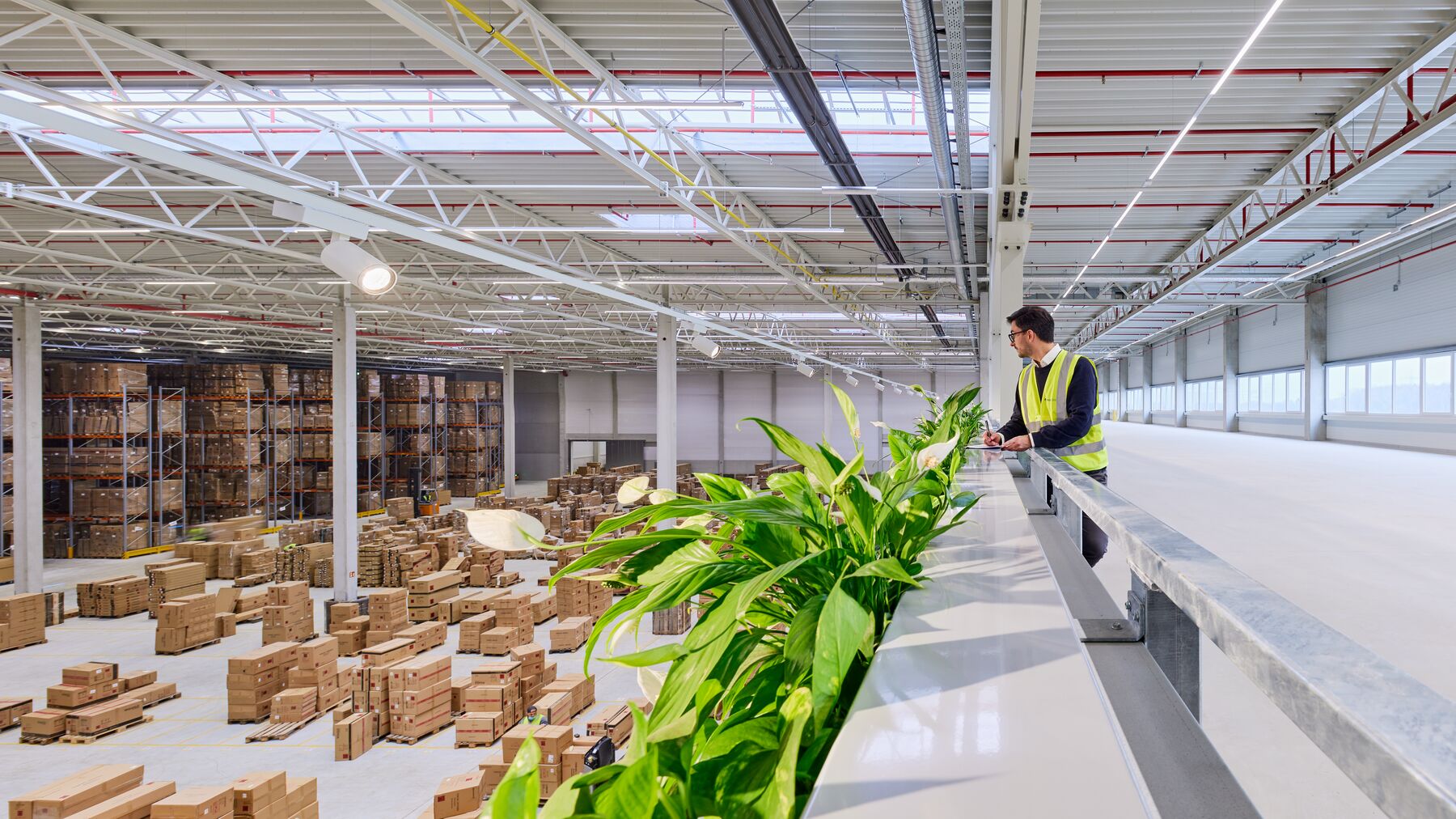- Prologis Supply Chain Outlook Report 2025: Insights from executives in Germany, the US, and the UK on supply chain management
- 89% of respondents in Germany aim to increase automation in their supply chains
- Study highlights the critical role of resilient and sustainable supply chains in ensuring security of supply—and the essential contribution of logistics real estate
Düsseldorf, February 3, 2025 – What are the future challenges in supply chain management? Prologis, in collaboration with US-based market research firm The Harris Poll, surveyed 1,025 senior executives across three countries, including 254 in Germany. The findings reveal consensus: economic and political pressures will increasingly determine where goods are manufactured and stored. Sustainability remains a priority, but investments in this area must deliver measurable returns in the near term.
From the climate crisis and geopolitical instability to declining consumer demand and economic uncertainty, executives worldwide face shared challenges. The conclusion is clear: supply chain management is in crisis mode. Two-thirds of global respondents admitted to losing sleep over the fragility of global supply chains.
Eighty-six percent of respondents across the US, UK, and Germany stated that economic and geopolitical pressures are shaping decisions on production and storage locations. Additionally, 85% said regulatory requirements are accelerating the implementation of sustainable supply chain solutions.
Green Real Estate: Securing Long-Term Profitability
The integration of green real estate solutions is increasingly recognized as a cornerstone of sustainable supply chain management. Globally, 87% of executives view "Green Real Estate" as vital—not only for environmental protection but also for their company's long-term profitability. In Germany, 85% of respondents echoed this sentiment, emphasizing that the return on investment (ROI) is a crucial enabler for financing sustainability in supply chain solutions.
Automation: Relieving Employees, Addressing Labor Shortages
"AI and automation" are key concerns for German respondents, who see automation as an essential solution to dual pressures: labor shortages and the need for operational efficiency. Automation promises increased productivity, reduced errors, and relief for overburdened staff.
In Germany, 89% of respondents plan to expand automation in their supply chains over the next two years, compared to 81% globally. Regulatory requirements (88% in Germany; 85% globally) and internal company pressures (87% in Germany and globally) are cited as primary drivers. Furthermore, 85% of executives in Germany believe that automation investments will significantly ease employee workloads and help mitigate issues like burnout (87% globally).
Concerns About AI and Cybersecurity
German executives express above-average concern about AI, with 84% fearing potential disruptions to their business. AI ranks as their top concern, followed by weak demand (81%) and economic outlook (81%). Globally, the corresponding figures are 73% for AI, 79% for weak demand, and 81% for economic outlook.
Cybersecurity risks also pose a threat, with 39% of German executives identifying them as a danger to their supply chains, compared to 50% globally. Similarly, 38% of German respondents emphasized the need to strengthen data and IT systems.
When it comes to leveraging AI and smart data solutions for supply chains, German executives prioritize optimized logistics processes (7.51 on a scale of 1 to 10), better demand forecasting (7.48), and expanded computing power and data center capabilities (7.48).
Robust, Secure, Resilient: The Supply Chain of Tomorrow
The survey underscores the importance of developing resilient and secure supply chain networks to mitigate risks and safeguard assets.
A tightened, shorter version of the quote: “Robust and secure supply chain solutions are essential to navigating economic fluctuations and digital threats,” says Björn Thiemann, Senior Vice President and Regional Head of Northern Europe at Prologis. “Logistics real estate enhances supply chain resilience, and investments in flexible properties, automation, and sustainable solutions are critical. These measures boost efficiency, strengthen competitiveness, and address growing regulatory demands.”

Survey Methodology
The survey, conducted by The Harris Poll on behalf of Prologis between September 4 and 19, 2024, involved 1,025 senior executives in key roles within their organizations. The study includes insights from 508 respondents in the US, 263 in the UK, and 254 in Germany, offering an international perspective on the challenges and opportunities shaping supply chain management. Participants were drawn from companies with more than 250 employees, one-third of which report annual revenues exceeding USD 2 billion.
